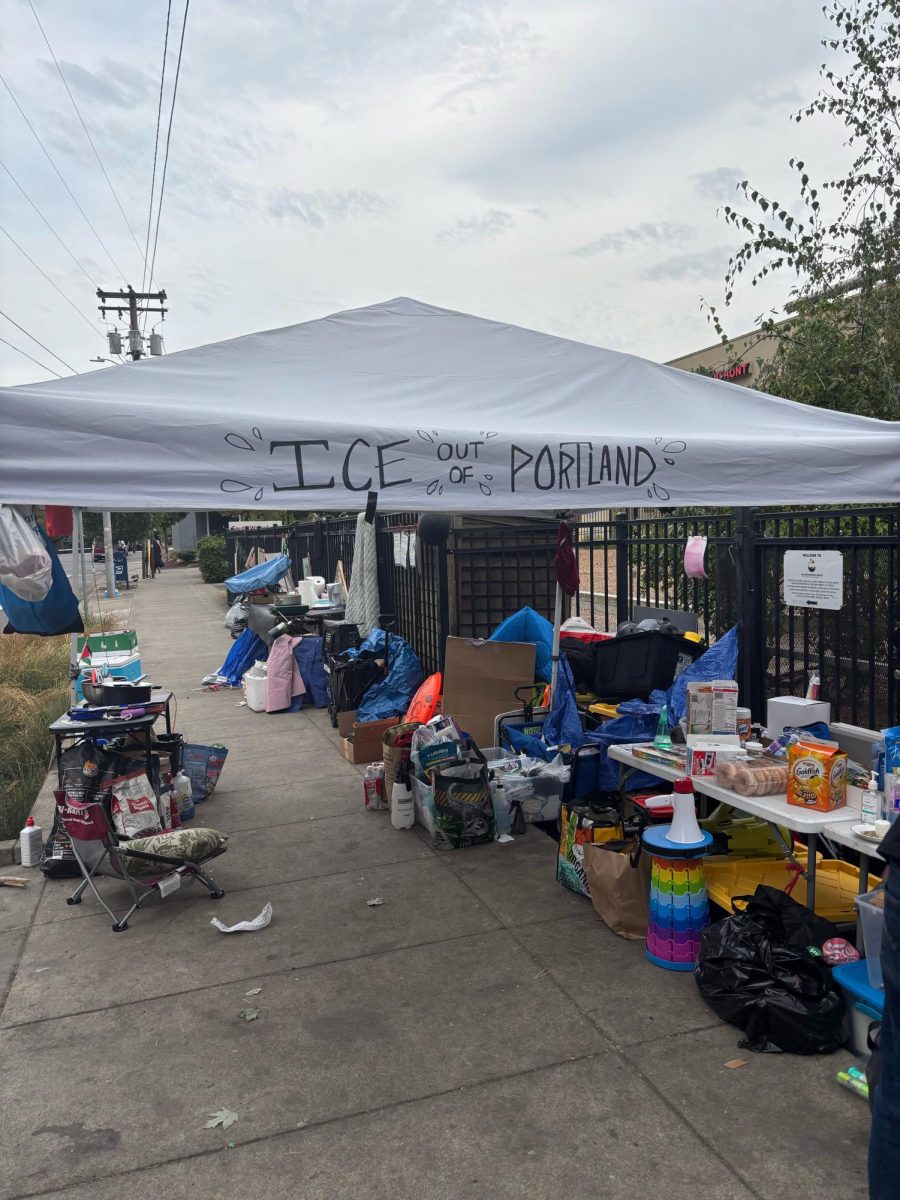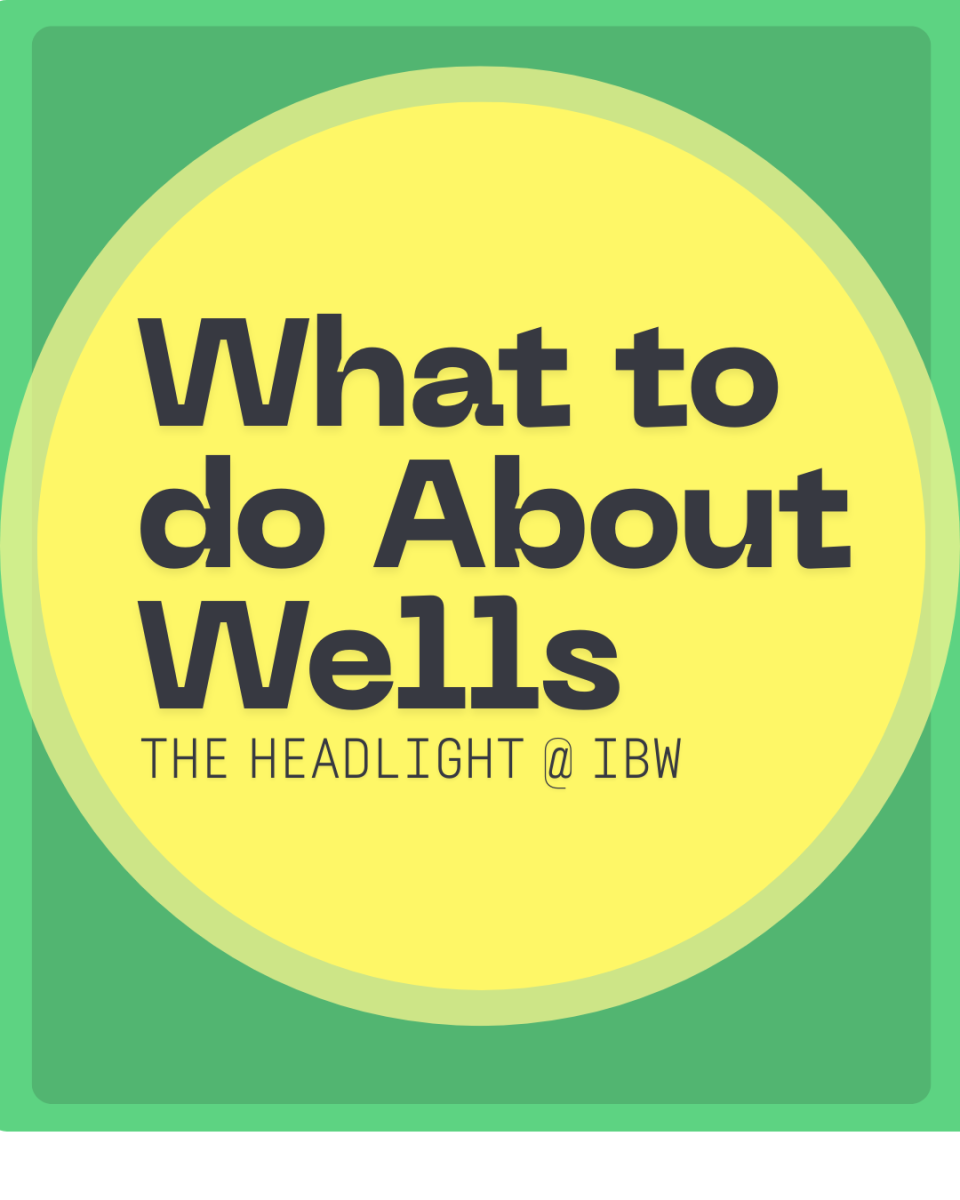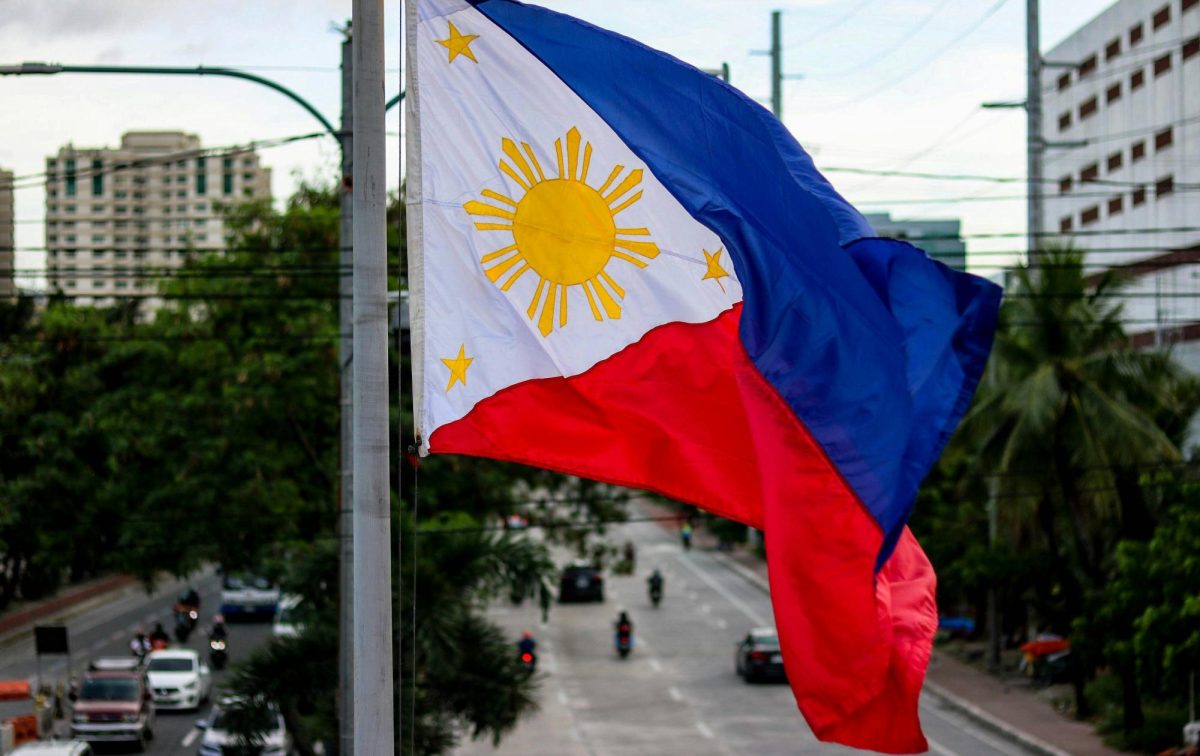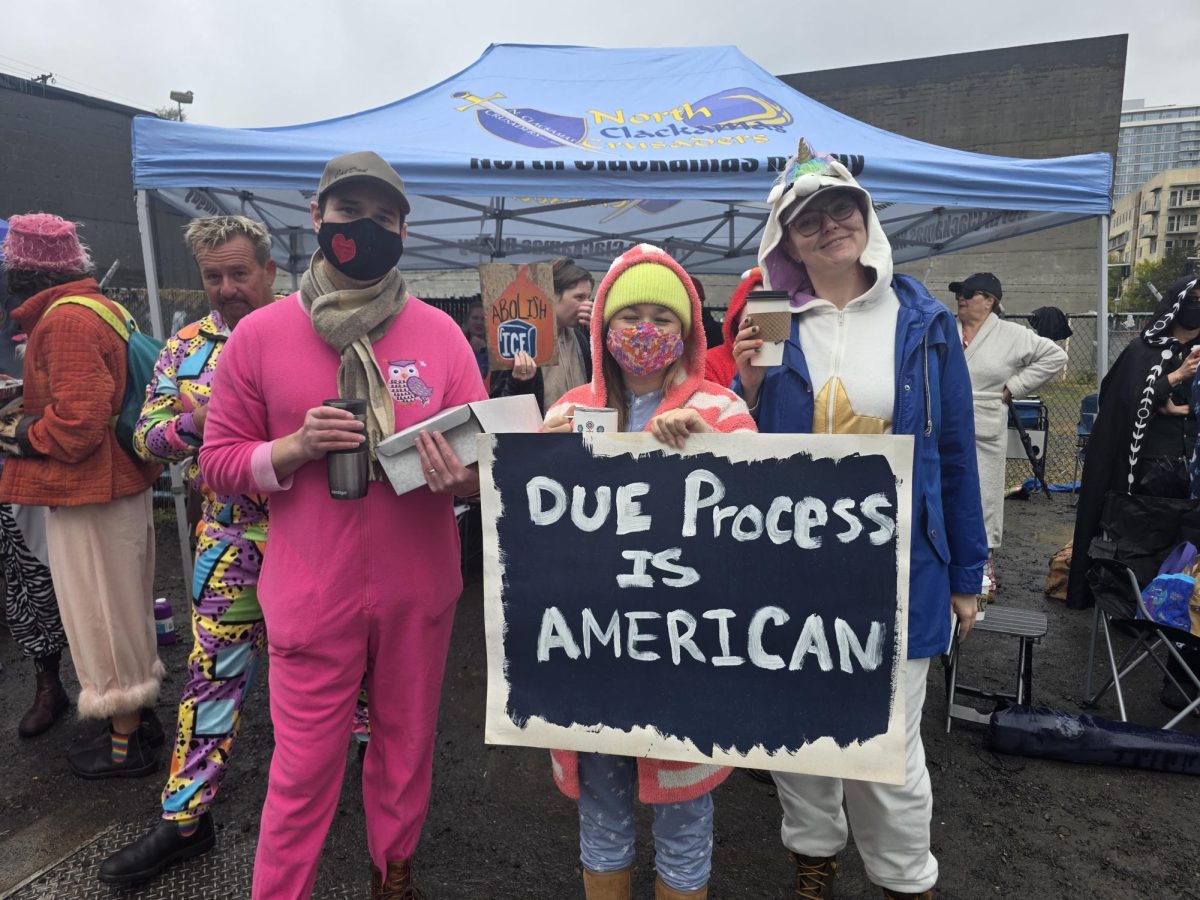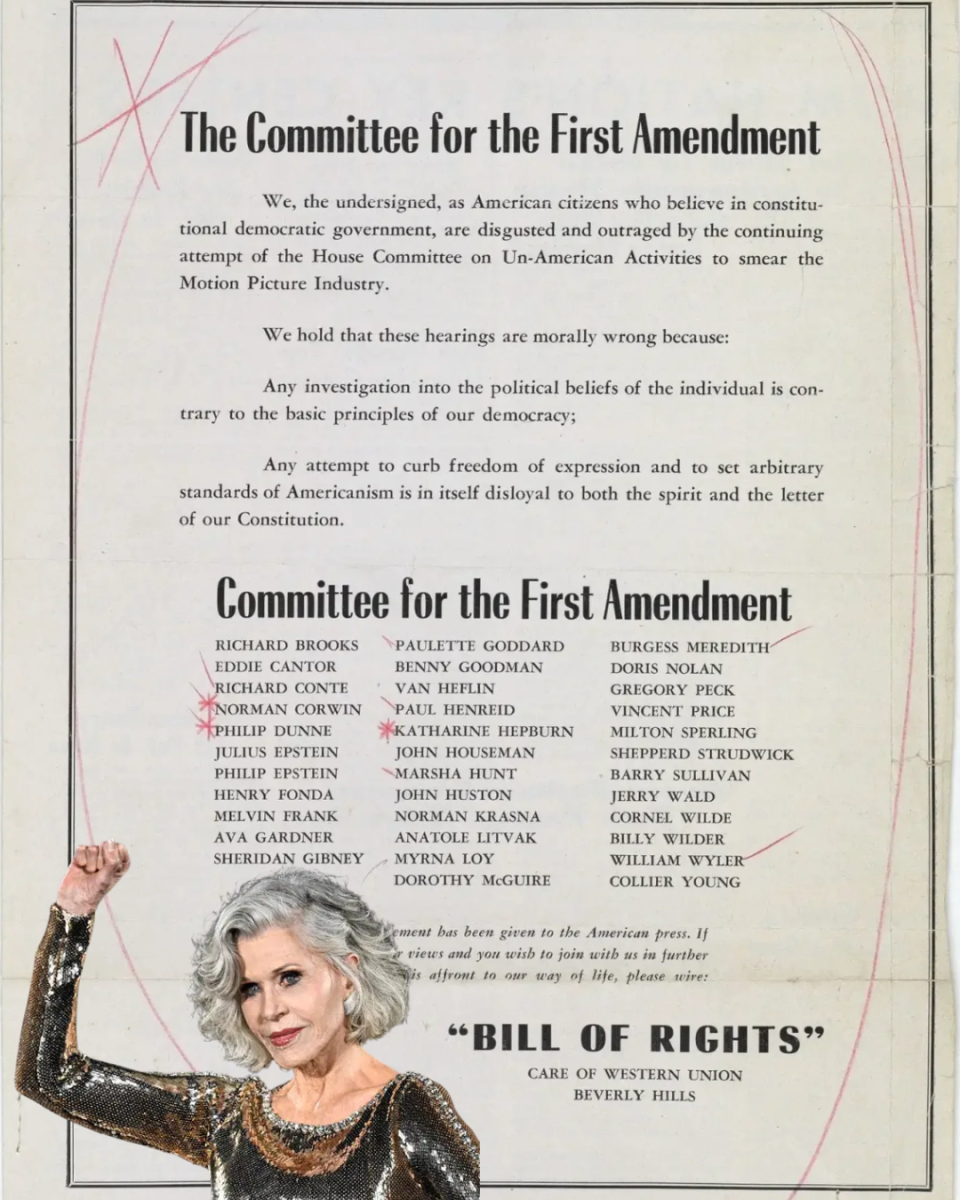Disclaimer: Anastasia Von Antz used to be a staff writer for “The Headlight,” but has since left the pathway.
On Sept. 27 U.S. President Donald Trump announced he would send troops to “war-ravaged” Portland, authorizing full force if necessary. He claimed this intervention was necessary to protect Immigration and Customs Enforcement (ICE) offices from “attack by Antifa, and other domestic terrorists.”
Portland Mayor Keith Wilson responded to this claim on Saturday, stating “the number of necessary troops is zero, in Portland and any other American city.”
Trump announced his plan to send National Guard troops to another city on Sept. 5, and threatened Portland as a potential candidate along with Chicago, Baltimore and Memphis. When asked which city he’d target next at a press briefing, he subsequently referenced a TV report he saw the day before about the ongoing protests against Immigration and Customs Enforcement (ICE) in Portland.
“There’s a part of me that hopes it doesn’t come true,” said Adrian Worley, a senior at Ida B. Wells. “But [Trump] certainly has the power to do it, and he’s already done it.”
A TV report published by Fox News details the response of ICE to the protests by their field office in Portland. The article highlights what ICE calls the “unhinged behavior of Portland protesters,” who have gained momentum since early June. This led to the complaints of residents who are bothered by the noisy protests. It includes old footage from 2020 depicting civil unrest following Black Lives Matter protests, which misleads viewers into thinking that Portland is in a state of chaos.
“When we go there, if we go to Portland, we’re going to wipe them out,” Trump said in the press briefing. “They’re going to be gone, and they’re going to be gone bad. They won’t even stand the fight.”
Portland citizens argue that Trump was misled by inaccurate representations of Portland. “I have engaged in several Portland protests ranging from sixth grade to just this past summer,” said Anastasia Von Antz, a senior at IBW and former member of the communications pathway. “And out of all of them, there was never a time that I felt unsafe.”
“We have to remember what happened in D.C. to think about what might happen in Portland,” said Matt Campeau, Social Studies teacher at IBW. “The stated reason the National Guard came to D.C. was to try and reduce the crime in the city, but is that really what happened?” Crime statistics for Portland are relatively low compared to other cities on Trump’s list.
Portland can expect similar measures to what D.C. has been facing since July. Such measures could include increased military presence, a shift where federal authorities take a more direct role in policing and security operations, security checkpoints, restricted access to certain areas and increased surveillance.
This will mostly affect Portland’s lenient immigration policy and the security around the ICE building. “I don’t think I would be directly impacted, but as someone who lives in Portland, there would definitely be a butterfly effect,” said Worley. “I’m not one of the people being targeted, but just by [the National Guard] being in the area, things would change.”
That being said, D.C.’s attorney general, Brian Schwalb, sued Trump to end his deployment of troops to the nation’s capital on Sept. 4, arguing that Trump violated the U.S. Constitution by using military forces for domestic law enforcement, disregarding the U.S. capital’s limited local authority in what local news outlets have referred to as a “federal takeover.”
The lawsuit reads, “No American jurisdiction should be involuntarily subjected to military occupation.” With Trump’s decision to send the National Guard to Portland against the will of Wilson, Portland could issue a similar response.
Most Portland residents oppose federal intervention. It’s important to remember that Portland is a very democratic city, which influences Trump’s perception of its policies and governance.
“Oregon is one of the [eight] states that collect all ballots by mail, and Trump has stated his belief that ‘Mail-in ballots are corrupt,’” said Campeau.
While Trump is focused on Portland, he could try to change other policies he believes to be ‘corrupt’ as well. However, “any action like attempting to end mail-in ballots, or asserting any kind of U.S. Executive authority over local law in Portland, would certainly be challenged in Federal court,” said Campeau.
Portland residents and students worry that it could cause more chaos than Trump believes is already happening. “Involving the National Guard would be going from zero to 100 so fast, completely unnecessarily,” said Von Antz. “I can see it getting really violent, really quickly, both from the National Guard and from Portland residents.”
“I’m not sure how [I’ll] react to it,” said Worley. “This is such a serious thing that I have never experienced in my lifetime or even gotten close to, because I am still a child. I don’t know how much I can do to help.”
In addition, Trump has received severe backlash from Portland residents following his claim that living in Portland is like “living in hell.”
Recently, @foodiesnitch posted a viral TikTok showcasing the beauty of Portland with the caption “living in hell”, showing that Portland is nowhere near the crime paradise Trump paints it to be.
Local newspapers like The Oregonian have poked fun at this quote by releasing articles with contrasting headlines like “Trump said Portland is ‘living in hell.’ So why is the food so good?”
Wilson points out that the ICE protests in Portland remain centered around the ICE building, which local police are already managing.
Moreover, the presence of the National Guard in Portland could and already has negatively impacted the outside perspective of the city. It provides outsiders with the impression that Portland is an active warzone and can’t manage itself.
“I vividly remember in 2020 when Trump claimed that ‘the entire city [of Portland] was ablaze all the time,’” said Von Antz. “There were clips of rioting and fires on the news and social media, and I would get calls from relatives being like, ‘Hey, are you guys okay? Are you in danger? Do you need a place to stay?’ And everything was fine. My mom and I would drive down the road and be like, ‘Ah, yes, Portland, being on fire,’ and it’d just be a peaceful protest of people going on about their day.”
Trump’s decision to send the National Guard to Portland won’t just enforce national and local security; it will cause beyond legal impacts and social backlash that will severely escalate tensions between the state of Oregon and the federal government.


